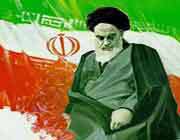Legislations in Islamic Jurisprudence and Despotic Systems

In Islamic jurisprudence system, the jurist is the enforcer of the theological rules and regulations enacted by the Almighty God and passed by the Divine legislator. We also said that absolutism of Islamic jurisprudence is in the enforcement of laws not in changing the Islamic precepts. Also, absolutism in enforcement of law does not mean the jurist is allowed to enforce laws as he pleases. The enforcement of law should be carried out according to certain rules and regulations stipulated by the Divine legislator. In the meantime, for the benefit of the Muslims the jurist can make a choice between enforcement of important and very important laws. In this sense, the jurist must be highly learned and keep up-to-date on everyday issues of the Muslims. The jurisprudence of the jurist is continuation of the path of God and the Infallible Imams on people. Even the Prophet of Islam (PBUH) and the Imams had no permission from God to make alterations in the fixed theological laws.
Thus, as the Holy Qur’an asserts, the Islamic jurisprudence has no right to make alterations whatsoever in the absolute theological laws: “And if Muhammad had made up about Us some [false] sayings, We would have seized him by the right hand;”[i]
Imam Khomeini says: “Only jurisprudence and justice have the final rule in Islam. In fact, the Divine law is the ruler and master of people not a certain person,”[ii] whereas in despotic government there is no law beyond the rule of a despotic ruler. He is himself the law and there is no need to enact law for the benefit of the people or for their religion.
References:
Khomeini, Ruhollah, Ketab al-Bai’, Eslami Publications, Qom 1415 Lunar Year
[i] Surah Alhaqqah: 44-46
[ii] Imam Khomeini, Ketab al-Bai’: 464/2
Translated by: Sadroddin Musawi
Other links:
Islamic Jurisprudence
Differences between a Monarchic and Islamic System of Government